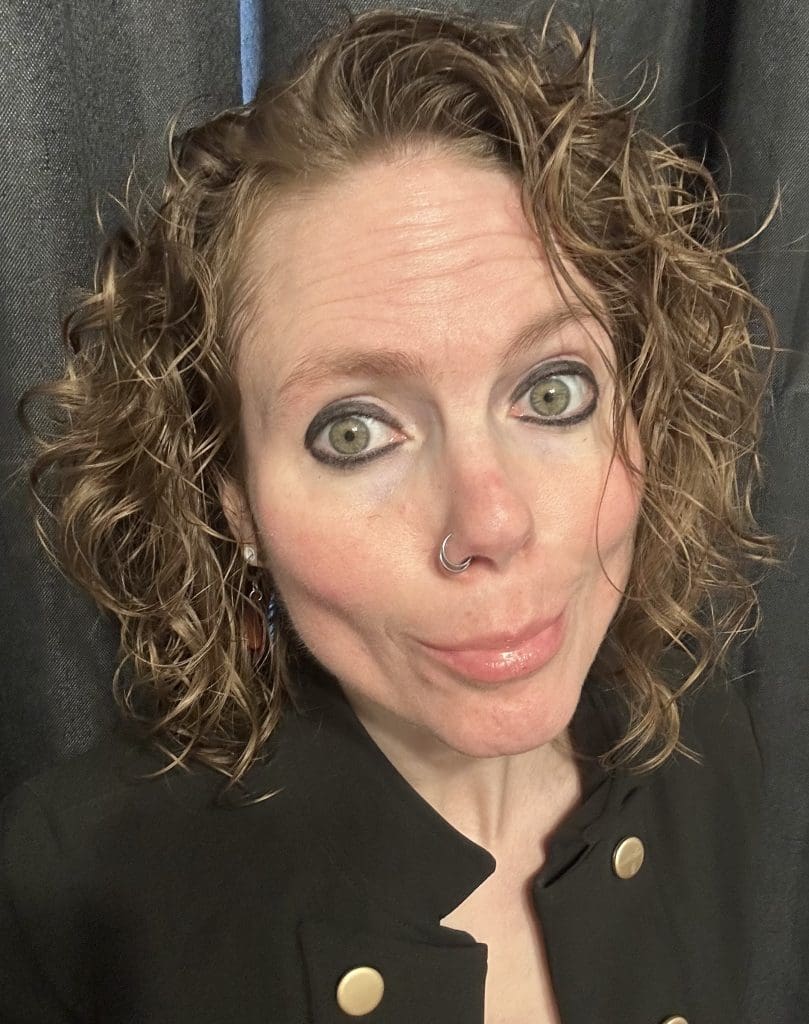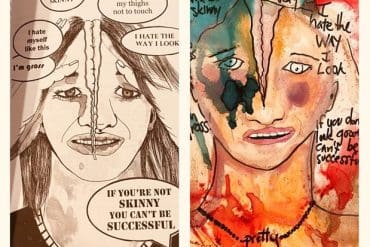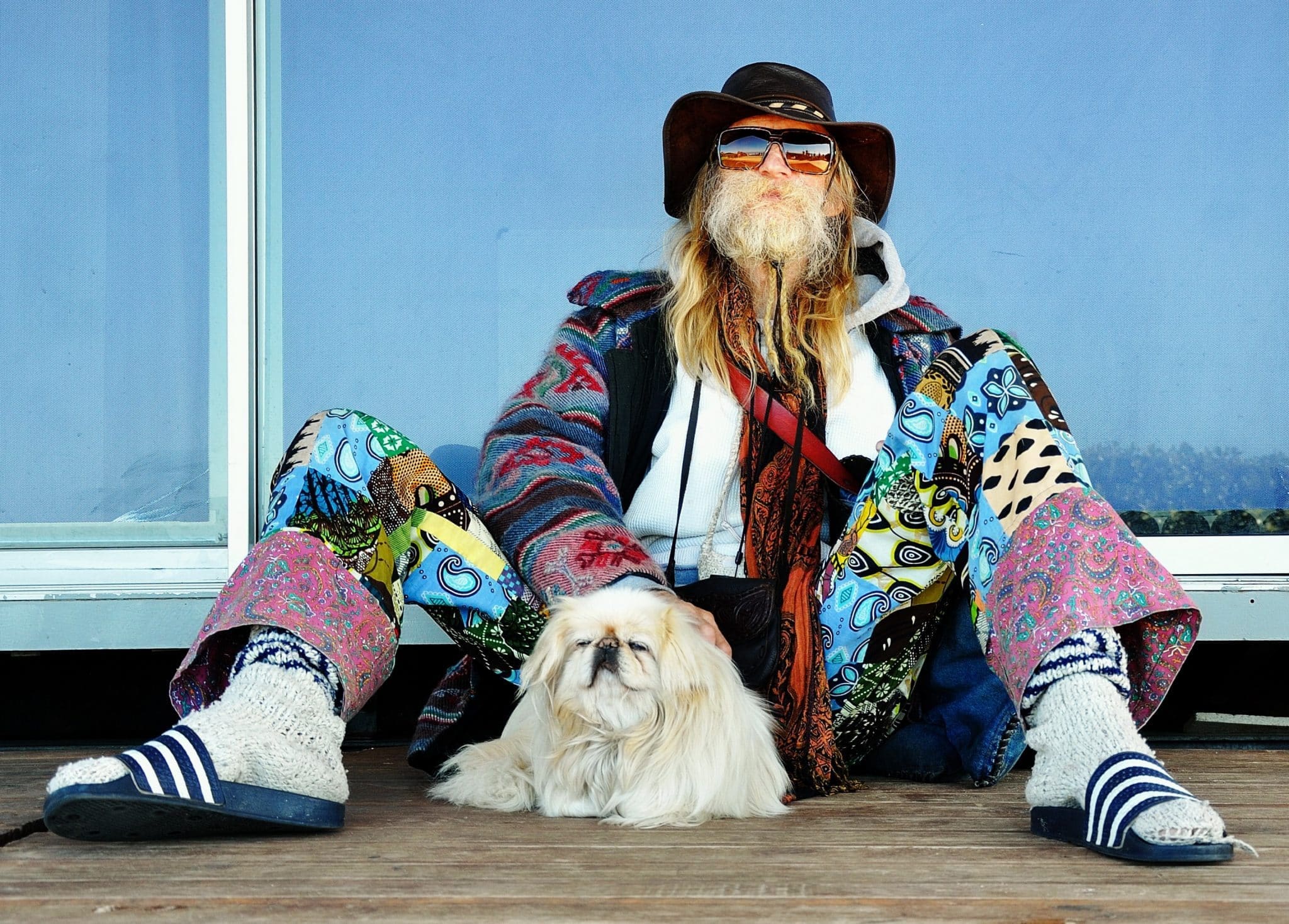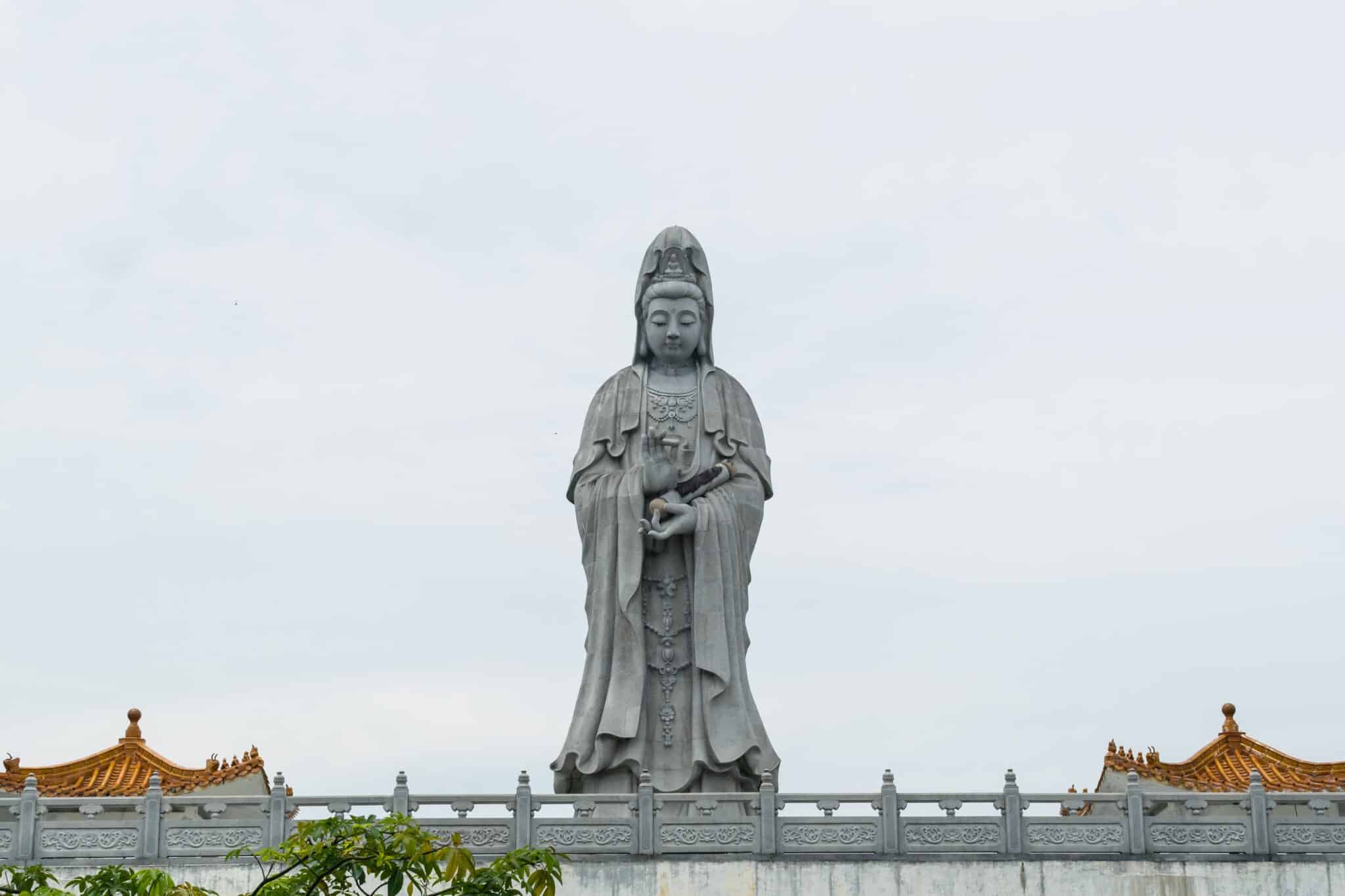Start Again and Sparkle Always with Celestial Bodies
Some things I’d change, but it’s too late
I’d take the past and make it straight
Even though it’s complicated
We’ve got time to start again
I don’t know if you can hear me…
—Teenage Fanclub, “Start Again”
My spouse can generate glitter out of thin air. I’m being completely serious—they often leave a bit of sparkle wherever they go, by unknown means. After 12 years of partnership and 7 of marriage, I still can’t figure out how precisely they do this. However, they only seem to make glitter appear out of nowhere in places where I spend significant time. As a savvy social scientist, I can only conclude that something about the two of us together makes magic happen.
I felt that magic in June of 2014 when my spouse took me to see their favorite band at the performing arts center in downtown Tampa. We’d seen the Counting Crows together before, but this concert felt special for several reasons. The fact that they covered one of my favorite Teenage Fanclub songs certainly didn’t hurt. But moreover, I’d proposed to J several weeks prior in our favorite sleepy little beach town. I thought that summer would be a time of waking up. It did indeed become one, but not in the ways I’d hoped. I thought the past was well behind me, that I’d exorcised its ghosts and could look forward without inhibition.
I was dead wrong—a prescient sort of phrasing I’d return to just months later amid multiple fights for my life. The physical battle against a potentially deadly bacterial infection in my lungs that had stopped responding to antibiotics felt like almost an afterthought in the face of the mental battle against unprocessed trauma from past abuse. Some ghosts don’t leave so easily.
I’ve always been one to reach for the stars though, a common theme among those of us living with progressive chronic diseases. I was born with cystic fibrosis, a genetic disease that makes all the body’s mucus very sticky. Imagine pouring rubber cement into the gears of a machine and you’ve about got the gist of things. You don’t survive something like this day after day without a lot of nerve and a few big dreams to fuel it. In times past, I deluded myself to think being tough in the face of harm would mean a lifetime of numbness to its consequences. I’d later come to learn that post-traumatic stress is called that for a reason.
I had to do some serious emotional work to become ready to get married. I’d say “again”, but I didn’t feel truly ready the first time. On the eve of my first wedding, my mother had given me a piece of advice: Don’t get married unless you feel 100 percent confident that this is what you’ll always want for the rest of your life. And my response: Oh, Mom. That’s statistically impossible. I’d dismissed her words as mathematically unrealistic—but she couldn’t have been more correct.
Life eventually took me in a different direction. I would move 1,500 miles away from the foundations I’d carved out; I would start again in a new place. I’d build a career. I’d return to school anew, this time for a PhD. I expected to come out with a degree, which I did. I also came out with a life partner. And I came out fully in other contexts: as bisexual, as nonbinary, as polyamorous. On the eve of my second wedding, I reflected on my mother’s advice from years ago.
Writing this reflection on the Tess Lee series now, looking out toward the horizon of a life together that seems to stretch for miles, could scarcely feel more apt or less random. This is a reflection on loving confidently, bravely, ambitiously. It’s a celebration of all the riches that brings. It’s a look back at Tess Lee and Jack Miller’s epic love story across time and trial—and likewise, at my own.
When Patricia first invited me to read an advance copy of Shooting Stars Above and provide an endorsement, I wondered what I might say about the journey of a monogamous relationship between straight cis people. Even leaving aside the cynicism my life had given me cause to feel about the concept of “happily ever after” I knew I wasn’t precisely the expected crowd for romance stories. Clearly I was the right crowd for this one, though. It only took the very first intimate encounter between Tess and Jack for me to understand why Patricia had tapped me to endorse this book.
He leaned back to look at her and she noticed the scars on his body: two on his right shoulder, another on his abdomen, and smaller marks along his upper arms. When he noticed her looking, he turned around to lower the light, revealing the gashes across his back. She brushed her fingers along the deep marks. “I’m sorry,” he said, turning to face her. “War wounds. A couple of gunshots. Some other stuff from when I was in the Gulf and later doing undercover work. I know it’s gruesome.”
“It’s wonderful,” she whispered.
“What?” he said.
“I’m sorry, I didn’t mean it that way. It’s just that I’ve never seen anyone whose outsides match my insides.”
—Shooting Stars Above
On the surface ours was a fairytale love story. Although I’d never found my footing in a Cinderella role, I found I made a passable Prince Charming. At least if that character had met his love at a sociology department picnic wearing cutoff shorts and an FSU Biomedical Sciences T-shirt. My spouse certainly had quite an acumen back then for losing their sandals in odd places. I’d pick them up and chase after that familiar pair of feet. We did that for one another a great deal even in the early days. They told me they loved me on the very first. And only three days later, they said with absolute confidence that they would marry me someday. I mused that they seemed quite certain of this; they nodded and said yep as insouciantly as if they’d been ordering coffee.
Here’s the thing: They weren’t wrong. On some level, I knew it even then. I didn’t go running my mouth about marrying my partner for some time. Marriage wasn’t really something I was looking to do again—but of course, neither was getting into another relationship. Things were complicated back then; being with my spouse seemed bizarrely simple. Two essential truths defined our connection from the start. One from my parents: When you know, you know. They got married after knowing each other for only five months… in 1971. And one from the classic Rent musical that has always meant the world to my spouse: I’m looking for baggage that goes with mine. I’d always thought Rent a bit idealistic—but really, isn’t love always?
The most aspirational maxims about love are often the most important ones as well. Read it again. My favorite of all has become the even though it’s complicated, we’ve got time to start again idea I shouted along with that summer night in 2014. I keep coming back to this idea—and moreover, the intentional practices associated with it—in thinking on what I love best about the Tess Lee books. Right from the start, Tess and Jack commit to choosing one another actively each day and honor those choices in their behavior.
This doesn’t mean they always get everything exactly right for one another, of course. Some of their most uplifting moments as a couple stem from the times when things go wrong—and how they work together to make them right again. In each novel we see examples of Tess and Jack giving each other space for their unique emotions, listening attentively to one another while keeping their minds as open as possible, and swiftly implementing the new knowledge each of them gains as a result of this sharing.
She pulled back, tears in her eyes. “Do you have any idea what our marriage means to me?”
He used his thumbs to wipe away her tears. “Sweetheart, our marriage is everything to me.”
“There’s nothing without trust, Jack. What you did hurt me.”
“I’m so sorry.”
“I know you’re a good man and that you were only doing what you thought was honorable, but I would never go behind your back, for anything, ever. We need to have complete trust.”
“I know, baby, and I promise it will never happen again: I don’t ever want you to look at me again the way you have tonight. I won’t forget this.”
He brushed the side of her face, leaned forward, and kissed her softly.
She pulled back. “Jack, I need some time. I’m upset.”
—Supernova Hearts
Not only does this series so beautifully demonstrate the gloriously transformative audacity of loving openly and courageously—and diving right into relationships that invite these practices—it also does that dynamically over time as the reader matures and has their relationships mature. Coming back to it now at a particularly apt time in my own life, I find new pearls and inspiration in an old familiar oyster. Exact words as usual—one of the collaborations I feel proudest of between myself and my spouse is our social fiction novel Other People’s Oysters about intergenerational bonds in family and community on Florida’s Forgotten Coast. We published that book just one year before Hurricane Michael devastated the Apalachicola region.
But like the intricate ecosystem there, things have slowly but surely bloomed back—both for communities around the bay and for the people who bring them to life. I can relate to this, especially of late. Remember how I mentioned being polyamorous right at the beginning of this reflection? Perhaps appropriately, that sword has two distinct edges. I spent the early portions of the COVID-19 pandemic getting sliced to ribbons by one. I’ve since leaned intentionally into cultivating and polishing the other.
Polyamory is the only way of living that has ever felt right to me. The years I spent in a monogamous relationship always felt off somehow, like a garment that didn’t quite fit. Having always seen polyamory as a wise and ethical way of living, I came to see it as essential for my own happiness. Not necessarily always having other partners besides my spouse, but rather always having the autonomy to nurture important relationships as part of an overall ecology centering my marriage. I know I’m married to the right person. My first thought on most days is how glad I feel to share my life with my spouse, and how grateful I feel for the courage to let them truly know me. I feel comfortable being vulnerable with them. And I come by that appreciation honestly, to say the least.
Once again, I think of something my mother told me long ago: Relationships always take work, but relationships shouldn’t be work. I don’t think I fully appreciated that distinction until the last couple of years. An unfortunate dark side of prioritizing gratitude has often been twisting myself into convoluted shapes to appreciate people who treat me poorly. When you’ve been abused, it’s easy to mistake the bare minimum of decency for something special—and to say “well at least it’s not that bad” when even that basic standard goes unfulfilled. Likewise, it’s easy to focus on the joy and fulfillment of a happy marriage with a sort of halo effect. It can seem like everything else in life should be okay given contentment with a spouse. But this sort of thinking can become a trap of seeing yourself as the problem when things don’t feel okay.
I’ve seen Tess and Jack practicing this awareness in their own monogamous marriage—not with respect to other partners, but certainly with respect to other situations that intersect with their marriage and the trust they cultivate within it. Life partnership is about teamwork, something the Tess Lee novels demonstrate as a figurative journey to the stars. Building trust with another person after trauma is deeply aspirational.
The end goal can also seem terribly far away. I needed over two years between proposing to J and marrying them for many reasons. Even the very morning of our wedding, I had emotional work to do. You can know you trust a person in theory and struggle to implement that knowledge in practice. For people living with complex post-traumatic stress, this is entirely normal. But it really does get better if you let it. And letting it proves much easier with a partner who supports you actively in making that choice continuously every day.
“Jack, you could never hurt me.”
“Not on purpose. But I needed to know you could tell me if it was too much, that you could tell me anything, otherwise I never could have been with you like that, so intense. Tess, there’s such deep trust between us. You can tell me anything. I want to know what’s going on in your mind. I know you’re not ready to talk about whatever it is, but I’m here when you are. Someday I hope you’ll choose to tell me how you feel and what you need in the moment. I promise then you’ll see that we’ll be as close as two people can be.”
Her eyes became watery. “I’m closer to you than I’ve ever been to anyone.”
“I know, and that’s how I feel about you, which is why someday I hope you’ll know in your heart that’s it’s okay to tell me what you need. You never ask for anything for yourself, but you can and you should.” He wiped under her eyes and pressed her body to his. “Fall asleep just like this,” he said, and he kissed the top of her head.
—Twinkle of Doubt
Importantly, Tess and Jack don’t do this emotional work in a vacuum. The idea that it takes a village to raise a child rings true in the abstract sense as well as the concrete one, something I’ve come to appreciate in my own marriage. Like Tess and Jack, my spouse and I don’t have kids together and don’t plan to. But nurturing our family fully still comes far more easily with robust support from other important people in our lives.
“Shh…” he whispered. “Tess, I felt the same way. We made that decision together. Being with you was the best thing I had ever experienced, and I didn’t want anything to change it either. It wasn’t just you.”
“Really?”
“Yes, baby. I love the life we’ve built together. I wouldn’t change a thing. Would you?”
“No. I love our life. It’s just that I would never think that way now. I trust what we have in a way I wasn’t capable of back then. The decision we made was right for who I was at the time, but if you’re asking me if it would be different now, all I know is that I’m different now. You’re different too. When I see you with your family, doting over your niece and nephews, I wonder if you wish we had a family. I’m worried that my insecurity caused you to be denied something meaningful. You deserve every happiness, and I’m terrified that I’ve deprived you of a piece of that.”
“Sweetheart, there’s nothing that we could ever do together that I wouldn’t want. If we had decided to have kids, I would have been completely committed. But the truth is, I’m perfectly content with our choices. After all those years fighting the worst of humanity, seeing only darkness, what I longed for most was a kind of peacefulness. I wanted tranquility and light, which is exactly what our life has given me. So while I would have loved every moment of raising a child with you, I wouldn’t do things differently. I wouldn’t change a thing. You, me, and Buddy. We’re a family.”
—Stardust Forever
I’ve talked a lot about my mother, and about the thoughtful advice she has given me since early days on matters of love and relationships. Here I should also mention my father, who has taught me a lot of lessons by example about growing as a partner. He’d be the first to tell you that his discussions with me inspired some of the lessons he wound up learning himself. My father’s humility may be the most powerful example he has set for me in my own adult life. He has developed much greater courage in owning his mistakes and facing the evidence of their impacts. I can’t imagine a more important skill set in loving someone.
I’ve been fortunate to have outstanding family of origin who support me in my every endeavor—even and especially those that send me down very different paths than the ones my parents have followed. They’ve never wanted me to be anyone other than myself, something not every child ever finds the peace of knowing as an adult. And they welcomed J warmly into our family and its unique culture from the start, supporting us ever since through our triumphs and our struggles in equal measure.
Several of J’s own family members have done the same with me. I’m reminded in both cases of the Millers from the Tess Lee novel. Their humble commitment to always doing better in supporting Jack and Tess mirrors what we’ve experienced with our own relatives in many cases. Given both of us have rather complex family trees, we’ve come to think expansively about the meaning and nature of family as a social construct supporting specific forms of intimacy.
Indeed, J and I have several close friends who have become found family to us. This will surprise absolutely none of the queer and trans folk reading this piece, I suspect! We speak often in the community about families of choice as a crucial support for our intimate partnerships and overall ability to thrive. I’ve resonated strongly with characters like Jones and Omar from the Tess Lee series.
Friends like these serve as the keepers of culture for vital intimate relationships, often reminding participants of the strength of what we’ve built together when those foundations feel shaken. Critically, friends also remind us of the stakes of our most central relationships. I think most people in long-term partnerships have experienced times when we’ve struggled to see the bigger picture. Keeping our eyes on the prize of a future together during the toughest moments has been much easier for having friends who actively facilitate that focus.
Jones burst into laughter. “Tess, you’ve lived quite a life. You better keep her entertained, Jack.”
“I do my best,” he said, raising his beer bottle.
“You do just fine,” Tess said. “It’s late and I’m exhausted. Besides, you two don’t stand a chance as long as I’m playing,” she said, standing up.
“You going to bed, baby?” Jack asked, taking her hand.
“Yeah. You two stay and have a guys’ night.”
He reached up, put his hand on her face, and she leaned down to kiss him.
Once Tess was inside Jones said, “Damn Jack, she’s quite a woman.”
“I know.”
“Look at you, my God, you’ve spent every day with her for five years and you blush just at the thought of her.”
“I’m in deep.”
“Do you realize you touch her every time she enters or leaves a room? Every single time.”
“Yeah. I like to make sure she knows how I feel.”
“You always did give one hundred percent. I never thought you’d trade in the old life for a woman, but it any woman is worth it, it’s your wife.”
—North Star Bound
People are often fond of saying that love conquers all. Oftentimes the reverse rings more true, though. What makes that difference? From what I’ve seen, the fleet of champions who lift us up during our darkest moments play a vital role. As we light the path for one another, my spouse and I have shared the sky with many winking stars. I could name whole constellations for my mother and father, or for my closest friends who have championed what J and I share together and I know they could say the same—just not here, as they’re busy spinning their own piece celebrating another aspect of Patricia’s work for this special issue!
I consider this entirely apt. Our evolving history of collaboration and friendship with Patricia has absolutely supported our connection and bond with one another in transformational ways. I find both privilege and joy in giving similar affirmation to celebrate the Tess Lee novels for this retrospective on Patricia’s work and impact in methods scholarship and social fiction. These books embody the lessons learned from a life of intentional compassion and growth, and a steadfast commitment to choosing love over fear. I hope Patricia will continue writing their own story, and sharing it with the world through new characters and narratives who bring its triumphs and struggles to vibrant life on the page.
The Tess Lee stories thrive in my head every single day. They remind me steadfastly that my own story is just getting started now that I’m finally learning to show myself the same kind of love that Tess and Jack find in each other so easily. In darker times I didn’t think I’d find myself on the doorstep of my 40th birthday at all, let alone feeling as if the best part of my life were just beginning. Living with CF has taught me important lessons about reciprocity and support. J has cared for me in the aftermath of several operations—exact words.
To say I am a difficult surgical patient would be putting things charitably. I thought for certain I would get fair recompense when caring for them after a procedure, but no. They slept, ate ice cream, and watched television quietly for the entire recovery period. I’ve apologized to them many times over the years for the chaos of caring for me after my own surgeries. They’ve never entertained a word, although they do admittedly wish they’d taken my mother’s warnings about my behavior when heavily sedated a bit more seriously.
Living with post-traumatic stress has imparted similar lessons—especially in those times when my own trauma has collided with my spouse’s. I’ll never forget the graciousness of both my parents and J’s birth mother in showing up for each of us during a particularly challenging time early in our relationship. Although it might seem inconceivable to some who have only met us recently, there were times in our first couple of years together when J’s brain struggled to remember who I was. From those moments I learned that reciprocity requires a basic willingness to occupy another person’s reality with them, even when it does not match our own.
“What is it? Omar, you have to tell me.”
“In over twenty years of friendship, I have never broken Tess’s confidence. Not once. I’m going to break it now for the greater good, but Jack, if she ever finds out I told you this, it will do irreparable harm to our relationship.”
“I give you my word, she’ll never find out.”
“Like I told you before, 99 percent of her believes she is worthy of love. That’s because of you. But there’s still that tiny voice. Most of the time it’s dormant, but there are moments. Every once in a while, she’ll be talking about you, always wonderful things, and then she’ll look at me and say, ‘Jack loves me.’ Even though it sounds like a statement, she means it as a question. I always look at her and say, ‘Yes, Butterfly.’ Then her eyes get a little watery. I’m not sure if it’s because she’s relieved to have me confirm it, or because she feels guilty for having to ask. When she gets that way, I just say, ‘Butterfly, it’s okay.’ Then she says, ‘Please don’t tell Jack.’ I say, ‘Of course not.’ She smiles and we move on.”
—Twinkle of Doubt
Likewise, I’m learning more about how to show myself the same grace that my spouse shows me as they and I mature individually and together. This sometimes includes exhilarating new journeys that only increase our eagerness about sharing our many joys with one another. I cannot give a better compliment than that. Especially not for a book series that centers a monogamous couple, which is far afield from my own experience even without the whole fabulous estate in Hawaii bit. Showing myself this kind of patience and compassion never feels truly easy. Looking back though, I see how it has become markedly easier—perhaps a touch more instinctive even.
Tess walked over to a window and peeked through the blinds. “Oh my God,” she muttered. She turned to everyone, with tears streaming down her face. “I’m so sorry. I’ve ruined your Christmas.”
“Don’t be ridiculous,” Mary said. “Please don’t be upset, dear. You need to focus on getting well. That’s the only thing that matters.”
Tess looked at Jack. He put his arm around her. “I’ll get rid of these assholes.”
“Jack, please, you could make it worse,” Tess said.
John approached them and said, “Tess, I would like to go outside. I think I can say something and get rid of them but I didn’t want to do anything without your permission.”
She wiped her face.
“Trust me, I promise I won’t violate your privacy. I’ll even leave the door ajar. You can stand behind it out of sight and listen,” John said. “I’d like to try if you’ll let me.”
“Okay,” she muttered.
John put on his coat and walked outside, leaving Tess standing behind the slightly open door.
All of the reporters rushed forward holding their microphones out, their camera crews in tow.
John began speaking. “No one else from my family is going to come outside and speak with you. What I have to say is all that you’ll get, and I won’t be answering any questions. Last night my daughter-in-law committed a truly selfless act. What she wants now is to recover and celebrate the holiday in private with her husband Jack and our family. I’m appealing to your sense of decency and asking you to honor her selflessness with your own act of selflessness. Please respect her wishes and leave.” He stood stoically. One reporter signaled to her cameraman and he turned his equipment off. One by one, they started to turn around and leave. When they were all in their cars and vans, John went back inside. He locked the door and turned to Tess, standing with tears in her eyes.
“It’s okay. They’re gone,” he said.
“Thank you,” she said softly. She sniffled and wiped her eyes. “It’s just I never had a father who would do that for me.”
“You do now,” John said. “I would hug you, but I don’t want to hurt you.”
They both smiled and joined everyone in the living room.
“Thank you, Dad,” Jack said.
John smiled and tilted his chin down.
“Now you need to get off your feet,” Mary said to Tess. “Would you be more comfortable on the couch or in a chair?”
—Constellations of Love
After four decades in this world, I still feel awestruck by the intricate beauty in sparkling lights. I find that splendor in stars that twinkle merrily in the sky just as I do in fireworks that burst jubilantly over the freeway as I drive home late in the evening, contemplating another wonderful day in a life now defined by intentional vulnerability and the astonishing healing it brings. The bad days still come, as they inevitably will. Even the strongest love cannot stop a progressive disease in its tracks. But in love as in health, I’ve long since stopped waiting for a miracle to come. I strongly prefer, as Tess and Jack do in the Tess Lee novels, to make my own miracles intentionally every day.
As a new year of my marriage dawns, I’m still cleaning up glitter in odd places. I’ve embraced the occasional winking glimmer on the furniture or flooring as a given in my life with my spouse. Life is better with a bit of shine around the edges, isn’t it? Every person with CF who has ever put twinkling lights around our bed to brighten the days we spend stuck there understands this well. Our lives shine brighter when we reach out for stars intentionally.
So it seems fitting that in my marriage, I’ve come to see myself as central to that phenomenon of making glitter appear rather than on the sidelines. Less so than my spouse magically conjuring those shining specks from nothing at all, perhaps it’s more that we leave a bit of sparkle wherever we go. I think Tess Lee and Jack Miller might just know a thing or two about that.
Note from Patricia Leavy
Please note that this author read an earlier version of the novels that follow my character, Tess Lee. I faced significant challenges with the original publisher of some early titles in this series, and that imprint ultimately failed. Fortunately, I retained the rights to the books, including the right to re-release existing or new versions. I have extensively revised each novel and these new titles will be released by She Writes Press each spring, beginning in March 2025 with the release of Shooting Stars Above in a series titled The Celestial Bodies Romances. Please follow their website for updates or check my website or social media.

About the Author
Dr. Alexandra “Xan” C.H. Nowakowskiis an Associate Professor in the Geriatrics & Behavioral Sciences and Social Medicine departments at Florida State University College of Medicine. They are a medical sociologist and public health program evaluator focused on aging with chronic disease and related social justice issues. Currently they serve as lead evaluator for the Florida Asthma Program, FSU’s collaborative REACH Geriatrics Workforce Enhancement Program, and the ACTS 2 training and support program for African American dementia caregivers. They also co-founded the Write Where It Hurts project on scholarship engaging lessons from lived experience of hardship and trauma, drawing on their own history with the progressive genetic disease cystic fibrosis and post-traumatic stress from domestic abuse.
Credits
Images provided by Patricia Leavy
Learn More
New to autoethnography? Visit What Is Autoethnography? How Can I Learn More? to learn about autoethnographic writing and expressive arts. Interested in contributing? Then, view our editorial board’s What Do Editors Look for When Reviewing Evocative Autoethnographic Work?. Accordingly, check out our Submissions page. View Our Team in order to learn about our editorial board. Please see our Work with Us page to learn about volunteering at The AutoEthnographer. Visit Scholarships to learn about our annual student scholarship competition.










